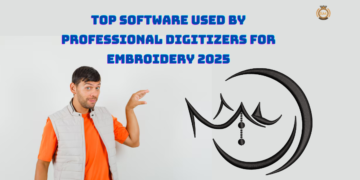Lottery software refers to a digital system built to manage the operational, transactional, and regulatory aspects of lottery games. From ticket sales to draw execution, the software handles critical functions such as player account management, draw results, payment processing, and compliance tracking. These systems have evolved into comprehensive platforms that cater to online, mobile, and even hybrid gaming formats. A modern lottery management system ensures that these functions operate smoothly while offering scalability and data-driven insights.
Role of Software in the Lottery Industry
Software plays a crucial role in making modern lotteries efficient, fair, and legally compliant. It enables real-time reporting, supports multi-language interfaces, ensures accurate prize distribution, and provides a digital interface for both users and administrators. As the industry expands globally, the need for dependable software platforms becomes more urgent, prompting operators to evaluate whether to develop custom solutions or choose off-the-shelf lottery software.
Understanding Off-the-Shelf Lottery Software
Key Features of Ready-Made Lottery Platforms
Off-the-shelf lottery platforms are commercial software products built with a universal design to cater to a broad range of operators. These systems often include essential features such as:
- Built-in ticket generation and draw engine
- Basic analytics and financial reporting
- Pre-configured user interfaces
- Support for different lottery types (daily draws, jackpot, instant win)
- Multi-device compatibility
- Standard compliance and security protocols
These platforms offer an effective starting point for those exploring the lottery market or seeking a quick deployment solution.
Pros of Using Off-the-Shelf Software
The main advantage is speed. You can deploy and operate within a short time frame with minimal customization. They are also cost-effective in the short term, with many vendors offering tiered pricing based on player volume or game modules. These products are usually stable, with bugs resolved through continuous vendor testing. Additionally, support and upgrades are part of the vendor package.
Cons of Using Off-the-Shelf Software
However, these platforms come with limitations. Customization is often restricted to cosmetic elements. You rely on the vendor for updates, and your ability to innovate or expand features is limited. There may also be recurring subscription fees, and over time, these can become substantial. For businesses requiring scalability, off-the-shelf solutions might create bottlenecks as your user base grows or operational needs become more complex.
Exploring Custom Lottery Software Development
What is Custom Lottery Software?
Custom lottery software is developed specifically for a single business or operator. It allows you to define the architecture, design logic, and functionalities according to your vision and operational model. This level of precision results in software that reflects your brand values and supports both standard and innovative game formats.
Core Benefits of Custom-Built Solutions
You gain the ability to create a unique user journey and implement workflows that align with your business goals. Features such as geolocation tracking, multi-currency support, blockchain-based draw verification, and third-party CRM integration can be built into the core. You also own the intellectual property, which means long-term control and freedom to iterate or license.
Potential Drawbacks to Consider
Building from scratch takes time and a considerable upfront budget. You need experienced developers familiar with gaming regulations and user data privacy laws. Post-launch, updates and maintenance must be managed either in-house or through a contracted partner. However, for operators serious about building a brand or introducing exclusive features, the benefits often outweigh the drawbacks.
Cost Comparison: Custom vs Off-the-Shelf
Upfront Investment
The initial cost is where the contrast is most visible. Off-the-shelf lottery platforms may cost between $5,000 and $20,000, depending on the number of games, supported countries, and player capacity. In contrast, custom lottery software can start at $30,000 and go well over $150,000, especially if you integrate advanced reporting, multi-level admin roles, or fraud analytics tools.
Maintenance and Upgrade Costs
Off-the-shelf vendors include updates in their service fees. But you may pay extra for feature add-ons or new game modules. Custom software requires a dedicated budget for ongoing technical support, server updates, and regulatory adaptations. However, custom-built systems offer greater predictability and control over future costs.
Return on Investment (ROI)
ROI is influenced by user engagement, retention, and operational efficiency. With a lottery management system built specifically for your model, you may achieve higher returns over time, especially if you introduce features competitors can’t match.
Time to Market: Speed vs Tailored Features
Deployment Timeline for Off-the-Shelf Software
For quick market entry, pre-built solutions are ideal. They can be installed and launched within weeks. Many vendors offer hosted solutions that require minimal setup, which is helpful for time-sensitive campaigns or pilot projects.
Development Timeline for Custom Software
Custom software, depending on its scope, may take 3–9 months. This phase includes planning, UX/UI design, development, testing, regulatory approval, and launch. It may take longer, but you gain full control of every process and outcome.
Scalability and Flexibility
How Off-the-Shelf Limits Future Growth
Off-the-shelf software may struggle to scale with user demand or incorporate non-standard features. You might face server limitations, plugin incompatibilities, or feature locks. In a growing operation, this can lead to performance issues or stifled innovation.
Customization for Business Evolution
With custom development, your software can evolve organically. Whether you’re adding new draw types, expanding to new markets, or adapting payment methods, the platform can be reconfigured to support these transitions. A flexible architecture also supports better integration with marketing tools and data systems.
Security Considerations
Common Security Features in Off-the-Shelf Tools
Most ready-made platforms use SSL encryption, data backups, and fraud detection tools. However, users depend on the vendor to address vulnerabilities, which might delay critical patches.
Enhanced Security in Custom Builds
Custom lottery software allows for multi-layer security implementation. You can define user authentication workflows, internal audit trails, KYC protocols, and integrate AI for unusual activity detection. This control is particularly important when handling large prize payouts or integrating wallets.
Integration Capabilities
Third-Party API Integration
Pre-configured software often restricts which APIs can be used. This limits partnerships with niche payment processors or external verification tools.
Compatibility with Legacy Systems
Custom software development enables easy synchronization with your existing systems. Whether you have an internal data lake or third-party CRM, integration can be done at the architecture level for better performance.
Compliance and Legal Requirements
How Each Solution Handles Legal Regulations
Off-the-shelf software generally includes compliance features for major markets. However, if your jurisdiction has specific tax rules, advertising laws, or draw regulations, these systems may fall short.
Geolocation, KYC, and Fair Play Standards
Custom solutions excel here. You can integrate detailed user onboarding, location tracking, and age verification processes. Lottery software providers with experience in regulated markets help ensure that every game adheres to fair play standards.
User Experience and Interface Design
Predefined UI in Off-the-Shelf Software
While functional, prebuilt user interfaces can be rigid and dated. They lack the uniqueness needed to retain high-value players.
Tailored UX in Custom Lottery Solutions
With custom design, you can prioritize smooth navigation, rich visuals, and real-time updates, which improve retention and lifetime value. The layout can also reflect regional design preferences or player behavior analytics.
Technical Support and Vendor Reliability
Support Offered by Off-the-Shelf Vendors
You receive standardized support levels—usually via email or ticketing. Priority support often costs extra. If the vendor discontinues the product, migration becomes a hassle.
Ongoing Maintenance in Custom Projects
Maintenance contracts with development partners offer transparency and planning. You can define your service-level agreement and scale support as needed.
Real-World Case Studies and Examples
A digital lottery company in South America launched using an off-the-shelf solution. It achieved early traction but encountered issues when attempting to introduce multi-tier jackpots.
Conversely, an operator in North Africa built a custom platform to accommodate mobile billing and local regulations. This investment helped them expand into three regions within 18 months. They also bundled casino game development services into their offering, enhancing user engagement and average revenue per user.
Who Should Choose Off-the-Shelf?
This model suits businesses testing the waters, operating on tight deadlines, or seeking MVP validation. It’s especially useful for fundraising campaigns, promotional lotteries, or charities running time-limited games.
Who Should Choose Custom Software?
Operators targeting global markets or requiring specific compliance workflows will benefit from custom builds. It’s also ideal for those seeking long-term cost control, performance optimization, and brand innovation. If you’re aiming to launch multiple lottery types or pair them with other gaming verticals, custom is the better path.
Future Trends in Lottery Software Development
Future lottery platforms will increasingly use machine learning to detect fraud patterns and personalize user journeys. Blockchain is becoming popular for verifiable draws, and mobile-first design is now mandatory. Some vendors also bundle in loyalty programs and social gaming to boost retention. This is where online lottery software development is merging with broader entertainment strategies.
Expertise of Bettoblock in Lottery Software
Before concluding, it’s worth highlighting Bettoblock, a trusted lottery management software development company known for its in-depth domain expertise. The team has worked on multiple large-scale projects involving secure payment integration, real-time analytics, and regional compliance adaptation. Whether it’s designing a lottery management system, enhancing player interaction, or developing companion mobile apps, Bettoblock consistently delivers software solutions that balance performance with reliability.
Their capabilities also extend to other verticals, having collaborated with partners on projects involving casino game development services, showcasing their versatility in the gaming ecosystem.
Conclusion: Making the Right Decision for Your Business
Choosing between custom and off-the-shelf lottery software requires a deep understanding of your business goals, technical readiness, and long-term vision. Each approach has its place depending on the context. For scalability, adaptability, and full ownership, a custom-built lottery management software solution is the most strategic investment. For quick deployment and lower initial risk, off-the-shelf can serve as a solid launchpad.
FAQs about Lottery Software Choices
Q1: Can I switch from off-the-shelf to custom later?
Yes, many start with prebuilt tools and transition as they scale.
Q2: Which software offers better long-term value?
Custom software usually offers higher returns in the long run.
Q3: What about compliance updates?
Custom platforms allow quicker adaptation to legal changes.
Q4: Is UI/UX customizable in off-the-shelf tools?
Usually limited to themes and minor changes.
Q5: Can I integrate my existing CRM?
Only with custom software or if the off-the-shelf product allows APIs.











































